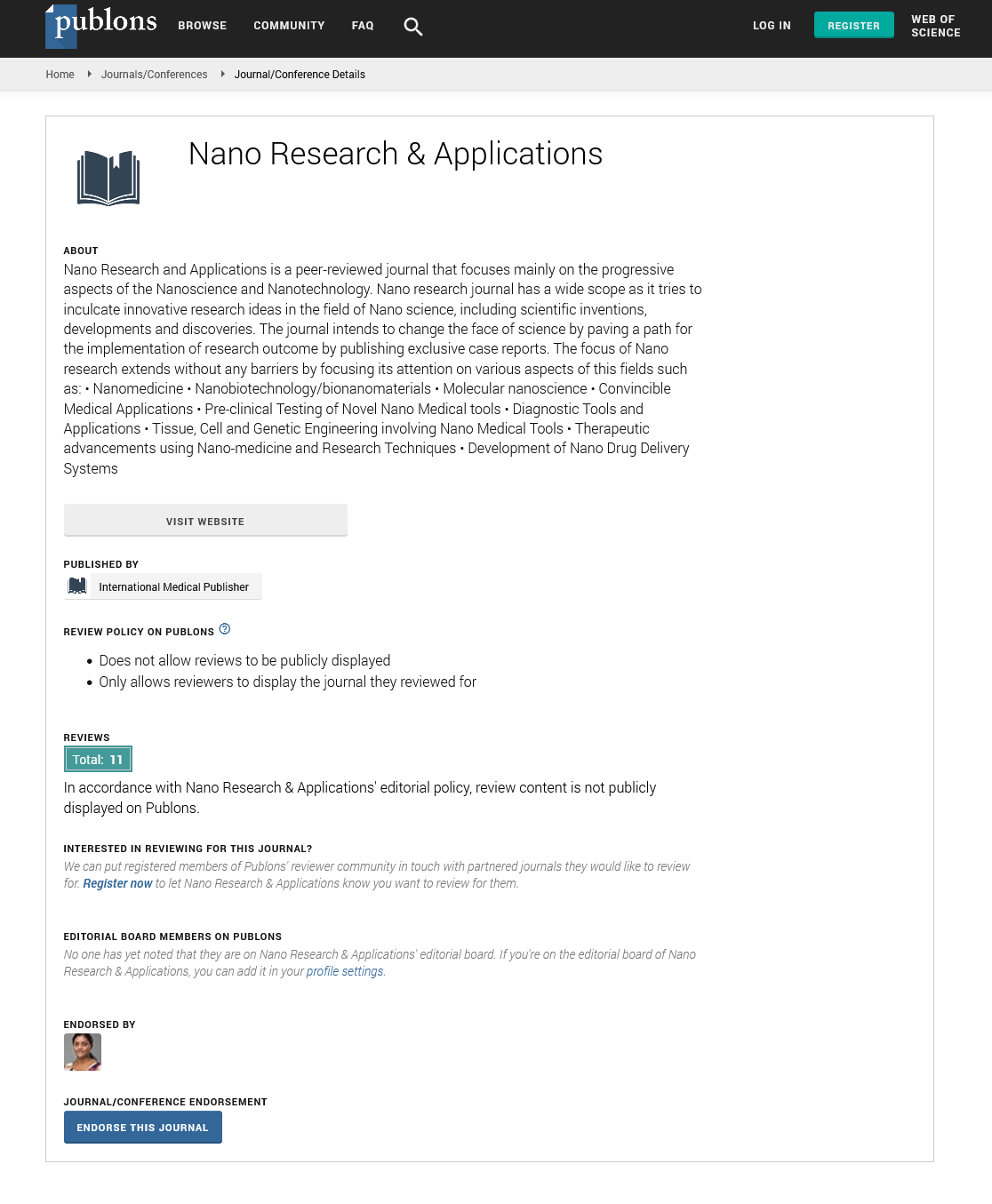ISSN : 2471-9838
Nano Research & Applications
Influence of chemical and electrochemical surface treatment of ECAP titanium on resulting corrosion properties and wettability
8th International Conference on Smart Materials and Structures
August 01-02, 2019 Dublin, Ireland
Katerina Dedkova, Josef Hlinka, Ludek Dluhos and Kristina Cabanova
VSB-Technical University of Ostrava, Czech Republic Timplant, s.r.o.,Czech Republic
ScientificTracks Abstracts: Nano Res Appl
Abstract
ECAP titanium of lower grades with extra fine grains may be used for manufacturing of highly loaded implant or their parts and presents excelent replacement of strandartly used Ti-6Al-4V alloy. This type of material aslo showes excelent corrosion properties ang high level of biocompatibility, which can be even impoved by different surface treatment. This paper deals with possibility oxidic anodization as a method of creation highly organised nanostructures on implant surface and further chemical treatment of anodized layer in acid/ alkaline solutions. It was proved that chemical treatment increases content of specific ions in anodized structure, which will leads into more effective osteointegration process while not affecting its of corrosion properties, which was tested by potentiodynamic polarization methods in artificial isotonic physiological solution according ASTM standards for implants. On the other hand chemical treatment positively affects wettabilility resp. surface energy of studied samples. Many previous studies focused on osteointegration process confirmed that lower values of contact angle directly corelate with effectivity of ossteointegration process and a relation between preferred induced type of organic tissue and implants surface energy has been previously published. Presented procedures of surface treatments shows promising results and might find its use in commertial implants manufacturing.
Biography
Katerina Dedkova has completed her PhD from VSB-Technical University of Ostrava. She is the Researcher at Center of Advanced Innovative Technollogies. She has published more than 14 papers in reputed journals and has been serving as a Rewiever of repute journals. Her research interest include biocompatible materials and nanocomposite materials.
E-mail: katerina.dedkova@vsb.cz
Google Scholar citation report
Citations : 387
Nano Research & Applications received 387 citations as per Google Scholar report
Nano Research & Applications peer review process verified at publons
Abstracted/Indexed in
- Google Scholar
- China National Knowledge Infrastructure (CNKI)
- Directory of Research Journal Indexing (DRJI)
- WorldCat
- Publons
- Secret Search Engine Labs
- Euro Pub
Open Access Journals
- Aquaculture & Veterinary Science
- Chemistry & Chemical Sciences
- Clinical Sciences
- Engineering
- General Science
- Genetics & Molecular Biology
- Health Care & Nursing
- Immunology & Microbiology
- Materials Science
- Mathematics & Physics
- Medical Sciences
- Neurology & Psychiatry
- Oncology & Cancer Science
- Pharmaceutical Sciences
